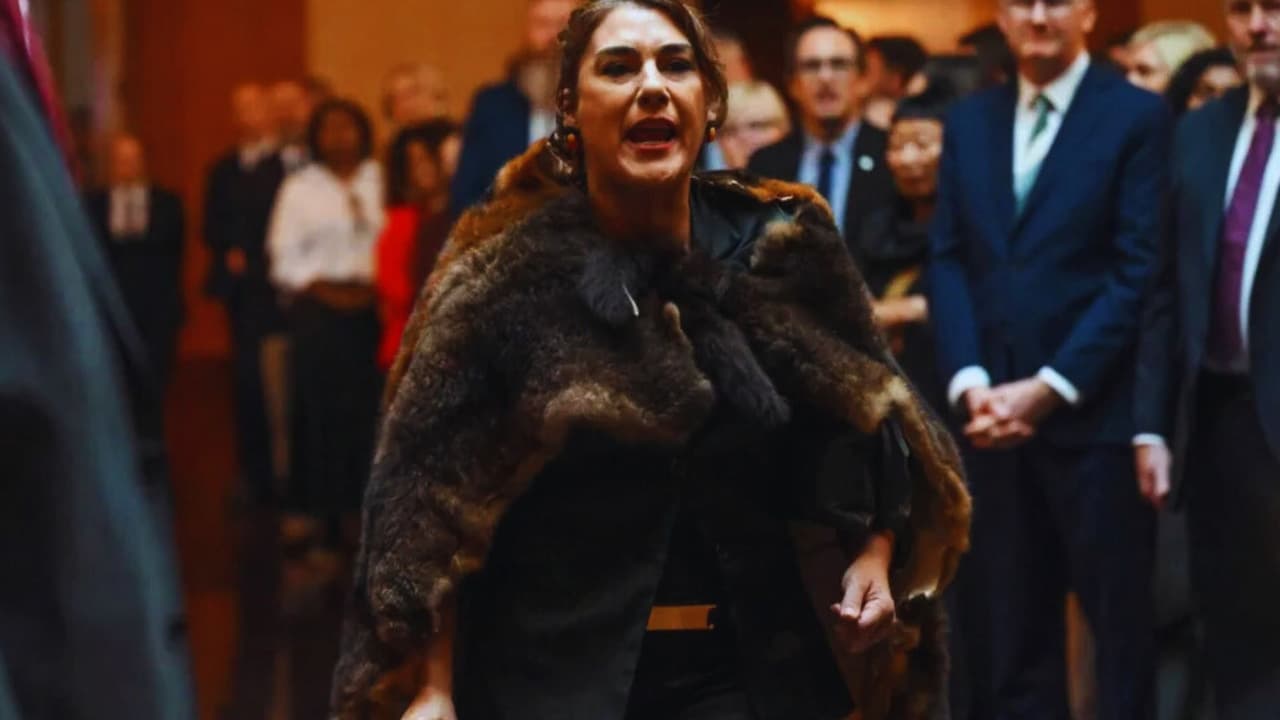Australian Democracy at Crossroads: Indigenous Senator’s Bold Stand Against Monarchy Draws Historic Censure
In a dramatic turn of events that has captured national attention, Senator Lidia Thorpe faced an unprecedented censure from the Australian Senate following her passionate protest against King Charles III during his recent visit to Canberra. The incident has reignited crucial discussions about Indigenous rights, colonial legacy, and Australia’s constitutional future.
The Protest That Shook Parliament
The atmosphere in Canberra’s Great Hall of Parliament turned electric when Senator Thorpe, a proud Gunnai, Gunditjmara, and Djab Wurrung woman, boldly declared, “You are not my king” and “This is not your land” during the monarch’s address. Her protest, aimed at spotlighting the ongoing impacts of British colonization, drew swift reaction from across Australia’s political landscape.
The Senate’s response was decisive: a 46-12 vote to censure Thorpe, marking her actions as “disrespectful and disruptive.” While the censure carries no legal weight, it sends a clear political message and bars Thorpe from representing the chamber in delegations.
A Voice That Won’t Be Silenced
“The British Crown committed heinous crimes against the first peoples of this country… I will not be silent,” Thorpe declared to reporters after the vote, unable to respond in the chamber due to a flight delay. Her unwavering stance has split public opinion, drawing both criticism and support from various quarters, including Aboriginal and Torres Strait Islander leaders.
History of Activism
This isn’t Thorpe’s first headline-making protest. In 2022, she made waves during her swearing-in ceremony by referring to Queen Elizabeth II as a “colonizer.” More recently, she emerged as a prominent “No” voice during the Voice referendum, criticizing the proposed measures as insufficient for meaningful change.
The Bigger Picture
The censure highlights deeper issues within Australian society. Indigenous Australians, making up 3.8% of the country’s 27 million population, continue to face significant challenges:
- Health disparities remain stark.
- Educational outcomes lag behind those of non-Indigenous Australians.
- Life expectancy shows troubling gaps
- Economic opportunities remain limited.
Royal Reception and Political Response
Despite the protest, King Charles and Queen Camilla received a warm welcome during their five-day Australian tour. Prime Minister Anthony Albanese acknowledged the complex relationship between Australia and the crown, noting, “Nothing stands still.”
Looking Forward
The incident raises important questions about Australia’s future:
- The monarchy plays a significant role in contemporary Australia.
- The future path for Indigenous rights and recognition is unclear.
- Maintaining equilibrium between protest and parliamentary decorum is crucial.
- The ongoing journey toward reconciliation
As Australia grapples with these challenges, Senator Thorpe’s protest serves as a powerful reminder of unresolved historical tensions and the continuing struggle for Indigenous rights and recognition in contemporary Australian society.
